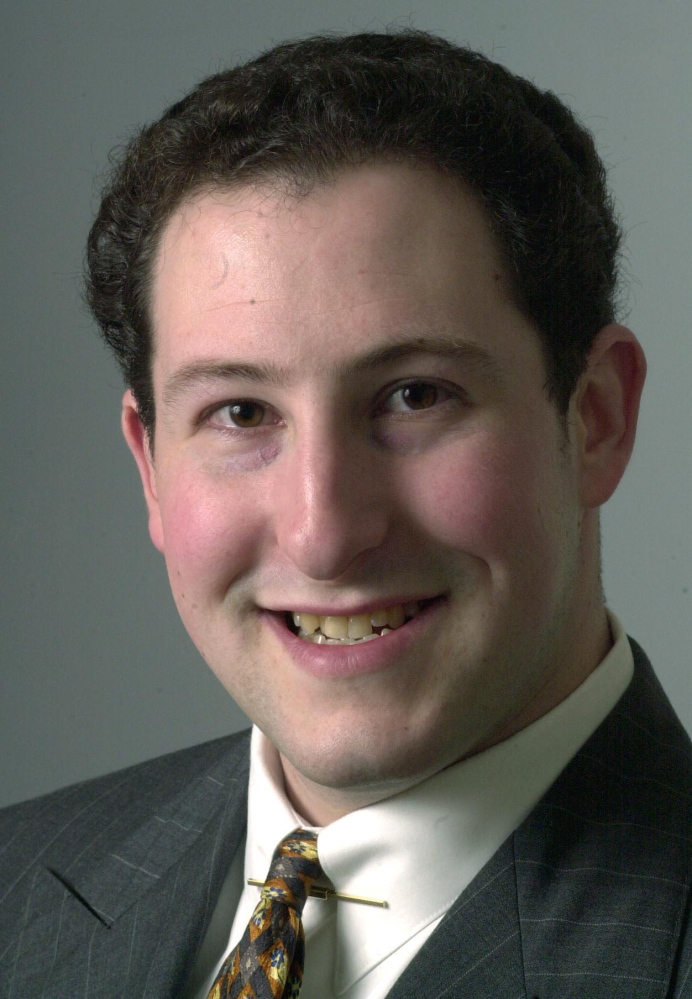A former state legislator pleaded guilty Monday to immigration fraud for his role in a scheme to allow women from Russia and Ukraine to stay in the U.S. illegally and for arranging a sham “green card” wedding.
Adam Mack, 39, of Portland, faces up to 10 years in federal prison and a $250,000 fine on two charges of aiding and abetting visa fraud and up to five years and a $250,000 fine on charges of aiding and abetting marriage fraud and making false statements to a government agency, according to the office of U.S. Attorney Thomas E. Delahanty II.
Mack, a Republican who represented Standish from 1998 to 2000, previously had been convicted of misusing federal funds in connection with a property management company he owned. He was ordered to serve six months in prison and repay $384,000 in restitution to the federal government. That fine contributed to his filing in December for bankruptcy protection.
Mack now is on supervised release in connection with the earlier conviction, but the immigration fraud predated his other conviction, so he was not charged with violating conditions of his release.
According to documents filed in U.S. District Court in Portland, Mack filed paperwork during the period from 2009 to 2011 with the federal government, saying a woman from Russia and another from Ukraine worked for him, when they didn’t. The documents were used to obtain visas for the women, allowing them to remain and work in this country.
Mack also helped arrange a fake marriage in Cape Elizabeth between one of the women, Mariia Shevchenko, and Christopher Segal, whom Shevchenko paid. The court papers do not say how much Segal was to receive, though he did receive one installment of $800.
Mack helped the couple prepare for their interview with U.S. Citizenship and Immigration Services, but during the interview, Segal confessed that the wedding was a sham, according to court papers filed by Assistant U.S. Attorney Darcie McElwee.
Authorities executed a search warrant at Mack’s home on May 22, 2014, and found evidence of the fraud on his home computers.
Court records don’t indicate what gain Mack received from the arrangement.
A telephone message left at Mack’s listed telephone number in Standish was not returned.
Mack also has been embroiled in a separate legal battle with the town of Wilton, where the Select Board voted to foreclose on the hazardous Forster Mill property, which Mack owned.
The town had tried for years to get the large industrial building torn down. It filed a suit against Mack in August 2013, seeking a court order to demolish the property.
The town and Mack were involved in an effort to mediate the suit, but Town Manager Rhonda Irish said previously that the town had lost faith in the prospect of Mack being able to come up with a plan for the property.
On March 17, Wilton foreclosed on the property, owned by Mack through Wilton Recycling LLC. Irish said the town is looking for ways to remove any hazardous material left on the site and tear it down.
Mack previously said he would sell metal from the building to help pay for the demolition, which he estimated would cost $250,000 to $350,000. A consultant for the town, however, said all valuable metal was stripped from the structure during a botched demolition effort in 2011.
The 2011 demolition was halted after workers reported improper removal of asbestos from the building. The mill had not been inspected for the presence of asbestos before demolition work began, a violation of Department of Environmental Protection rules. While cleaning up the remaining mess, an asbestos removal expert called it the worst asbestos site he had seen in Maine in 30 years.
In his two terms in the Legislature, Mack sponsored several pieces of legislation, including replacing the graduated income tax with a flat tax, eliminating funding for the Family Planning Association of Maine and prohibiting felons from voting, all of them unsuccessful. He also sponsored a bill to allow a referendum on Frye Island’s secession from Standish, which passed in the Legislature and won voter approval.
Mack will be sentenced after a presentence investigation report is prepared by the U.S. Probation Office.
The investigation was conducted by U.S. Immigration and Customs Enforcement’s Homeland Security Investigations and the U.S. Department of State, Bureau of Diplomatic Security.
The Morning Sentinel staff contributed to this report.
Send questions/comments to the editors.


